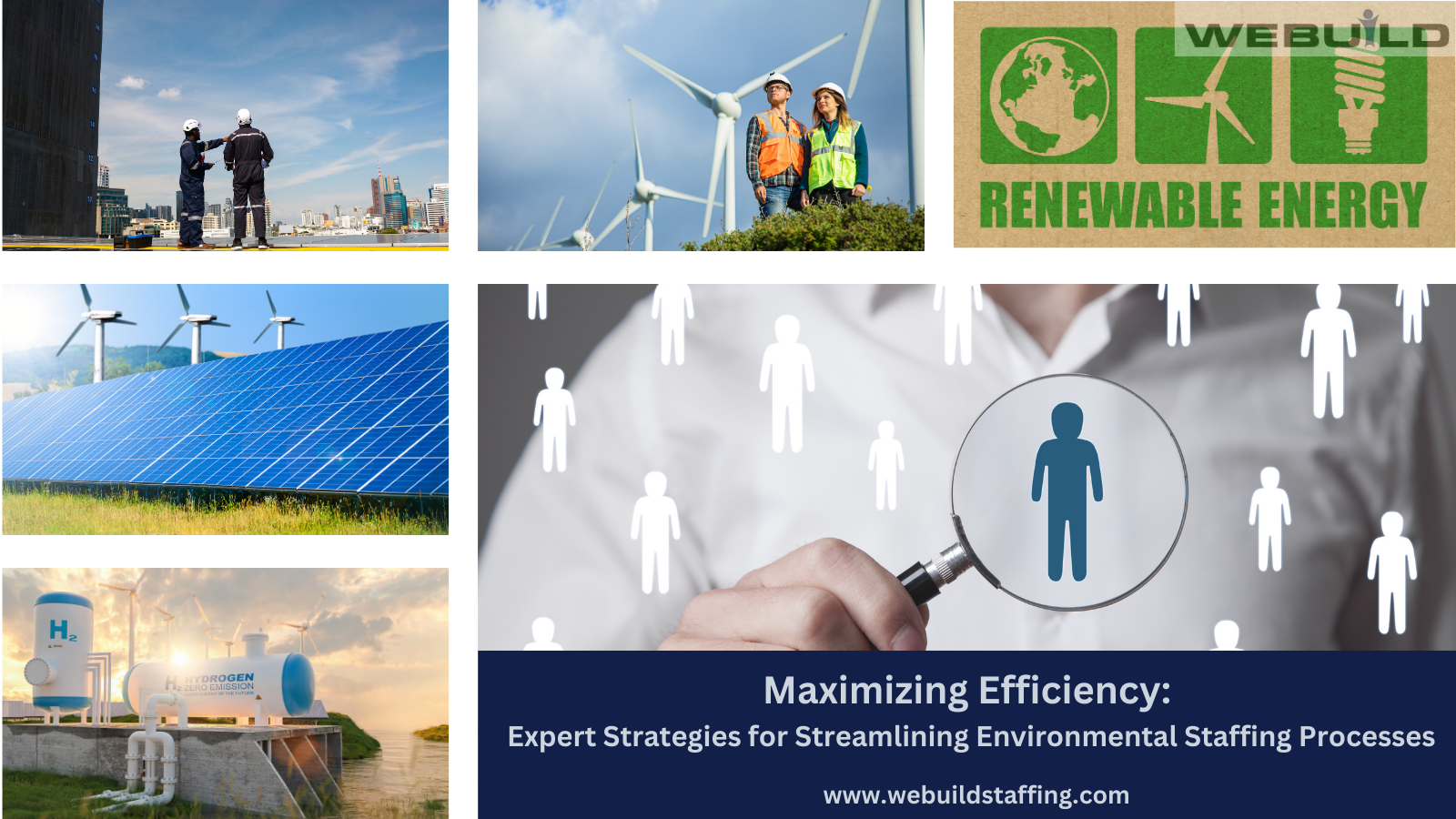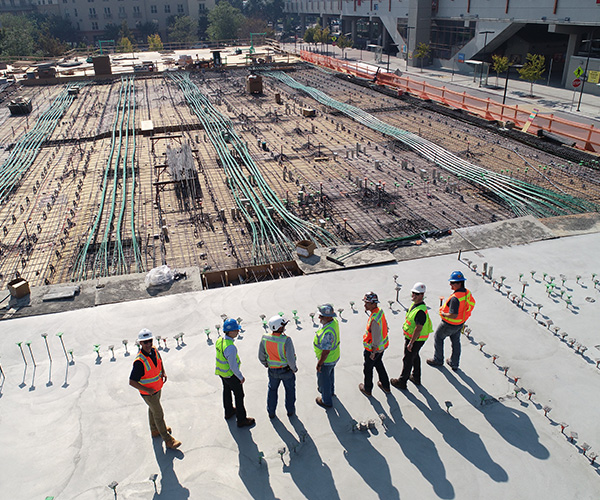Engineering a Greener Future: Exploring the Role Engineers Play in Sustainable Development
WEBUILD STAFFING BLOG |
Engineering a Greener Future: Exploring the Role Engineers Play in Sustainable Development

In an era marked by climate change and environmental degradation, the role of engineers in driving a greener future and sustainable development has become increasingly pivotal. As society grapples with the urgent need to mitigate environmental impact and transition towards greener practices, engineers are at the forefront of innovation, designing solutions that harmonize technological advancement with ecological preservation. This article delves into the multifaceted role of engineers in sustainable development and explores the exciting career opportunities within the realm of green technology.
The Imperative of Sustainable Development for a Greener Future
Sustainable development, as defined by the United Nations, is development that meets the needs of the present without compromising the ability of future generations to meet their own needs. It encompasses environmental stewardship, economic prosperity, and social equity, offering a holistic approach to progress. Engineers play a crucial role in realizing the objectives of sustainable development through their expertise in designing, implementing, and maintaining systems and technologies that minimize environmental impact while maximizing efficiency and effectiveness.
Engineering Solutions for a Sustainable / Greener Future
Engineers employ a diverse array of skills and knowledge to address sustainability challenges across various sectors. In renewable energy, for instance, they design solar panels, wind turbines, and hydroelectric systems to harness clean energy sources and reduce reliance on fossil fuels. In transportation, engineers develop electric vehicles, design efficient public transit systems, and optimize infrastructure to minimize carbon emissions and alleviate traffic congestion. Moreover, in the realm of waste management, engineers innovate recycling processes, design landfill alternatives, and implement sustainable packaging solutions to mitigate pollution and promote circular economy principles.
The Intersection of Engineering and Green Technology
Green technology, also known as clean technology or environmental technology, refers to innovative solutions that aim to address environmental challenges while promoting sustainable development. This burgeoning field encompasses a wide range of disciplines, including renewable energy, clean transportation, water and waste management, green building, and sustainable agriculture. Engineers specializing in green technology leverage their technical expertise to develop and implement solutions that reduce environmental impact, conserve natural resources, and enhance ecological resilience.
Career Opportunities in Green Technology
The growing demand for sustainable solutions has created abundant career opportunities for engineers passionate about environmental stewardship and innovation. Here are some exciting career paths within the realm of green technology:
-
Renewable Energy Engineer: Renewable energy engineers design and optimize systems for harnessing energy from renewable sources such as solar, wind, hydro, and geothermal. They work on projects ranging from solar farms and wind turbines to hydroelectric dams and geothermal power plants, contributing to the transition towards a low-carbon energy future.
-
Environmental Engineer: Environmental engineers focus on developing solutions to address environmental challenges such as air and water pollution, waste management, and environmental remediation. They design and implement systems for monitoring and mitigating pollution, ensuring compliance with regulatory standards and safeguarding public health and ecosystems.
-
Sustainable Design Architect: Sustainable design architects integrate environmental principles into the design and construction of buildings and infrastructure projects. They utilize green building techniques, such as passive solar design, energy-efficient insulation, and recycled materials, to minimize energy consumption, reduce carbon emissions, and create healthier, more livable spaces.
-
Sustainable Transportation Engineer: Sustainable transportation engineers design and optimize transportation systems to reduce carbon emissions, alleviate traffic congestion, and promote alternative modes of transportation such as walking, cycling, and public transit. They work on projects ranging from electric vehicle infrastructure and bike lanes to smart transportation networks and urban mobility solutions.
-
Waste Management Engineer: Waste management engineers develop sustainable solutions for managing and reducing waste, including recycling, composting, and waste-to-energy technologies. They design and optimize waste management systems to minimize landfilling, recover valuable resources, and promote the circular economy.
-
Climate Change Analyst: Climate change analysts assess the impacts of climate change on ecosystems, communities, and economies, and develop strategies for adaptation and mitigation. They utilize data analysis, modeling, and forecasting techniques to inform decision-making and policy development aimed at reducing greenhouse gas emissions and enhancing climate resilience.
Skills and Qualifications for Green Technology Careers
To excel in green technology careers, engineers require a combination of technical expertise, interdisciplinary knowledge, and a passion for sustainability. Key skills and qualifications include:
-
Strong foundation in engineering principles, including mathematics, physics, and mechanics.
-
Proficiency in relevant software tools and technologies, such as CAD software, simulation tools, and data analytics platforms.
-
Knowledge of environmental science and sustainability principles, including climate change, ecology, and resource management.
-
Ability to think critically, problem-solve, and innovate creative solutions to complex challenges.
-
Effective communication skills to collaborate with interdisciplinary teams, communicate technical concepts to non-technical stakeholders, and advocate for sustainable practices.
-
Commitment to lifelong learning and staying abreast of emerging trends, technologies, and best practices in green technology and sustainable development.
Engineers play a pivotal role in driving sustainable development and shaping the future of green technology. Through their ingenuity, creativity, and technical expertise, they design and implement innovative solutions that address environmental challenges, promote resource efficiency, and create a more sustainable world. As the demand for sustainable solutions continues to grow, so too do the career opportunities for engineers passionate about making a positive impact on the planet. Whether designing renewable energy systems, optimizing transportation networks, or innovating waste management technologies, engineers have the power to engineer a greener future for generations to come.
Webuild Staffing Agency is a leading executive search and staffing agency dedicated to the construction, engineering and environmental industries. To learn more please visit: www.webuildstaffing.com










